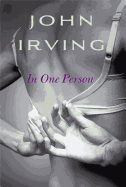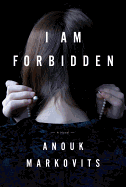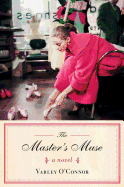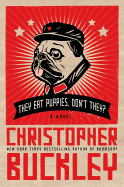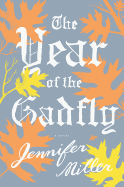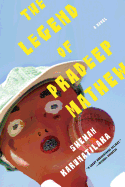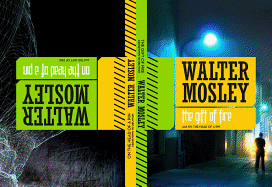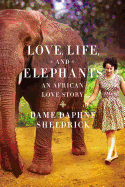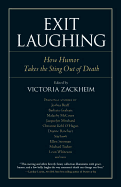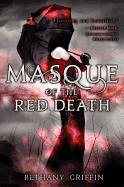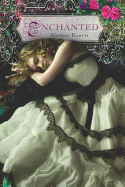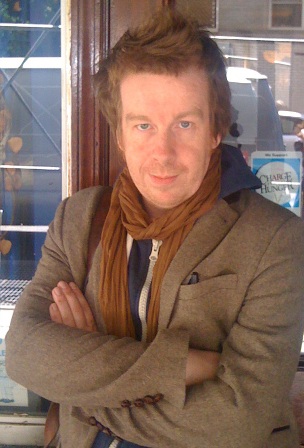 A common reference point for book critics trying to describe the dystopian near-future of Kevin Barry's debut novel, City of Bohane, a town where rival gangs pitch fierce battles for control of their territories, has been Anthony Burgess's A Clockwork Orange, but Barry himself doesn't quite see it. "There's only a few makey-uppy words in Bohane," he points out, sitting in a hotel cafe during a recent visit to the United States--and unlike the intricate vocabulary of Clockwork, his new slang should be easy for readers to figure out in context. (No back-of-the-book glossary needed here!)
A common reference point for book critics trying to describe the dystopian near-future of Kevin Barry's debut novel, City of Bohane, a town where rival gangs pitch fierce battles for control of their territories, has been Anthony Burgess's A Clockwork Orange, but Barry himself doesn't quite see it. "There's only a few makey-uppy words in Bohane," he points out, sitting in a hotel cafe during a recent visit to the United States--and unlike the intricate vocabulary of Clockwork, his new slang should be easy for readers to figure out in context. (No back-of-the-book glossary needed here!)
In fact, Barry confesses, it wasn't until he was halfway through the first chapter that he realized the story was even set in the future--from that point on, though, he ran with it. (This led to some amusing conversations after the book's publication in Britain, when he was invited to science fiction conventions and readers kept asking why he didn't explain how the world got to the state it was in.) If you tell him that the rundown streets of Bohane remind you of films like Escape from New York or The Warriors, he'll cheerfully agree--then point out how the story and its characters also fit neatly into the patterns of classic western movies.
It's no surprise, then, that his box set of Deadwood DVDs was a source of inspiration. He's also a big fan of The Wire and The Sopranos, comparing the structure of all three series to epic novels, spending a long time at the beginning establishing the set-up and the complex network of character relationships, then bringing everything together for a huge payoff in the final acts. (Barry is also a screenwriter and has adapted City of Bohane for Parallel Films, the producer of Albert Nobbs and Breakfast on Pluto.)
Even more than the setting and the characters, though, it's the language that makes City of Bohane stand out. It's not hard to see why critics think of Clockwork; if you're going to try to explain the way Barry uses language to depict a radically alien world, it's an obvious comparison. Except that the Bohane dialect is really not as alien as all that. "I am very much fundamentally a writer who works with the ear," Barry said, and the novel's dialogue, as well as the patter of its unseen narrator, draws upon the speech of working class Irish, especially in the western part of the country where he grew up, with a few borrowings from other cities he's lived in, like Edinburgh and Liverpool.
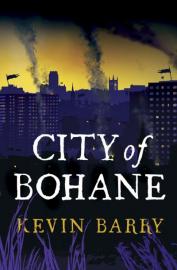 "It has a strong taste," Barry says of the language. "It's like mackerel. But if people like it, they really go for it." That distinctive flavor did, however, lead to some initial difficulties in breaking into the American market: a top-ranking editor at one major house told him that he loved the book, but knew that he would never be able to overcome the objections of the sales department. Another big publisher did express interest, but Barry was ultimately persuaded to accept an offer from Graywolf Press, an independent house in Minneapolis. Instead of being one of several midlist titles struggling for attention, he was told, "You'll be their big book of the season." The decision has paid off for both Barry and Graywolf, with front-page praise in the New York Times Book Review being perhaps the most prominent of the novel's rewards--all of which pave the way for the U.S. publication of Barry's second short story collection, Dark Lies the Isles, in the fall of 2013.
"It has a strong taste," Barry says of the language. "It's like mackerel. But if people like it, they really go for it." That distinctive flavor did, however, lead to some initial difficulties in breaking into the American market: a top-ranking editor at one major house told him that he loved the book, but knew that he would never be able to overcome the objections of the sales department. Another big publisher did express interest, but Barry was ultimately persuaded to accept an offer from Graywolf Press, an independent house in Minneapolis. Instead of being one of several midlist titles struggling for attention, he was told, "You'll be their big book of the season." The decision has paid off for both Barry and Graywolf, with front-page praise in the New York Times Book Review being perhaps the most prominent of the novel's rewards--all of which pave the way for the U.S. publication of Barry's second short story collection, Dark Lies the Isles, in the fall of 2013.
In the meantime, can readers anticipate a return to Bohane? Barry doesn't see the novel as the opening round of a trilogy--"they have a habit of going wrong in the third one"--but he admits that while he was working on the audiobook, he began to realize that he'd like to have done more with several of the characters, especially the women. "And when you build a city like this," he says, smiling, "it feels like real estate." --Ron Hogan, founder of Beatrice.com
Kevin Barry: The Distinctive Flavor of Language
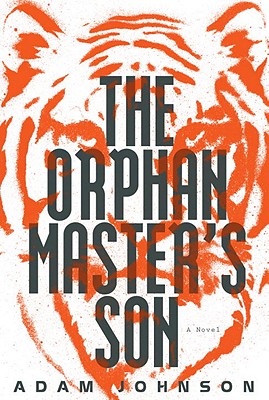



 A common reference point for book critics trying to describe the dystopian near-future of Kevin Barry's debut novel, City of Bohane, a town where rival gangs pitch fierce battles for control of their territories, has been Anthony Burgess's A Clockwork Orange, but Barry himself doesn't quite see it. "There's only a few makey-uppy words in Bohane," he points out, sitting in a hotel cafe during a recent visit to the United States--and unlike the intricate vocabulary of Clockwork, his new slang should be easy for readers to figure out in context. (No back-of-the-book glossary needed here!)
A common reference point for book critics trying to describe the dystopian near-future of Kevin Barry's debut novel, City of Bohane, a town where rival gangs pitch fierce battles for control of their territories, has been Anthony Burgess's A Clockwork Orange, but Barry himself doesn't quite see it. "There's only a few makey-uppy words in Bohane," he points out, sitting in a hotel cafe during a recent visit to the United States--and unlike the intricate vocabulary of Clockwork, his new slang should be easy for readers to figure out in context. (No back-of-the-book glossary needed here!) "It has a strong taste," Barry says of the language. "It's like mackerel. But if people like it, they really go for it." That distinctive flavor did, however, lead to some initial difficulties in breaking into the American market: a top-ranking editor at one major house told him that he loved the book, but knew that he would never be able to overcome the objections of the sales department. Another big publisher did express interest, but Barry was ultimately persuaded to accept an offer from Graywolf Press, an independent house in Minneapolis. Instead of being one of several midlist titles struggling for attention, he was told, "You'll be their big book of the season." The decision has paid off for both Barry and Graywolf, with front-page praise in the New York Times Book Review being perhaps the most prominent of the novel's rewards--all of which pave the way for the U.S. publication of Barry's second short story collection, Dark Lies the Isles, in the fall of 2013.
"It has a strong taste," Barry says of the language. "It's like mackerel. But if people like it, they really go for it." That distinctive flavor did, however, lead to some initial difficulties in breaking into the American market: a top-ranking editor at one major house told him that he loved the book, but knew that he would never be able to overcome the objections of the sales department. Another big publisher did express interest, but Barry was ultimately persuaded to accept an offer from Graywolf Press, an independent house in Minneapolis. Instead of being one of several midlist titles struggling for attention, he was told, "You'll be their big book of the season." The decision has paid off for both Barry and Graywolf, with front-page praise in the New York Times Book Review being perhaps the most prominent of the novel's rewards--all of which pave the way for the U.S. publication of Barry's second short story collection, Dark Lies the Isles, in the fall of 2013.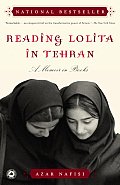 Since its publication in 2003,
Since its publication in 2003, 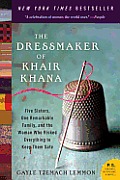 Gayle Tzemach Lemmon tells a similarly powerful true story in
Gayle Tzemach Lemmon tells a similarly powerful true story in 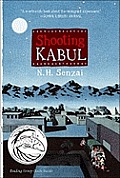
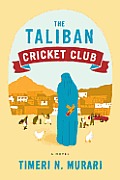 In
In  "Do you hate turning your neck sideways to read book titles at libraries and bookstores? Or scrunching down as well to view lower shelves?" If you answered yes to those questions, the
"Do you hate turning your neck sideways to read book titles at libraries and bookstores? Or scrunching down as well to view lower shelves?" If you answered yes to those questions, the  When I moved to France for a year with my family, writing a book was the furthest thought from my mind. We were escaping the rat race, reconnecting with family (settling in the tiny village where my husband was born) and rethinking our lives. A big city girl, I had no idea what awaited me: loneliness (the reserved French don't make friends easily) and miserable weather (our vine-covered stone cottage overlooking the ocean, so charming in summer, grew moldy and swayed under winter gales, and we took to wearing wool hats indoors).
When I moved to France for a year with my family, writing a book was the furthest thought from my mind. We were escaping the rat race, reconnecting with family (settling in the tiny village where my husband was born) and rethinking our lives. A big city girl, I had no idea what awaited me: loneliness (the reserved French don't make friends easily) and miserable weather (our vine-covered stone cottage overlooking the ocean, so charming in summer, grew moldy and swayed under winter gales, and we took to wearing wool hats indoors).